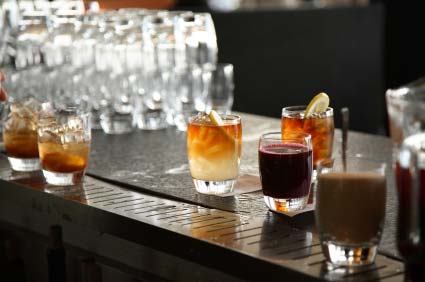Some Texas bars may have been systematically shortchanging customers by serving up lower-cost drinks in place of the top shelf brand names ordered by their clientele. The Texas Alcoholic Beverage Commission (TABC) is currently investigating claims made against 21 bars throughout the state that they substituted lower-cost alcohol products for the brands actually requested by their customers and that they charged those patrons at the higher rate for the drinks in question. Investigators indicated that four bars in the Houston area were involved in this activity. Serving counterfeit drinks could lead to the revocation of the Houston alcoholic beverage license held by these establishments and may result in added fines and penalties when the TABC investigation is concluded.
Operation Bottoms Up
After receiving numerous complaints from consumers, the TABC conducted an undercover operation this spring at 68 establishments across the state of Texas. At each stop, the investigators sampled top-shelf liquors and performed tests to determine that these drinks were genuine. At 21 licensed bars, counterfeit liquor was served to the undercover officials. Administrative notices have already been filed against 14 of the offending establishments; the remaining seven are under continuing investigation for multiple violations of the terms of their Texas liquor license. If these licenses are revoked, the bars in question will likely have to shut down for good.
Advanced Technologies Made Detection Possible
Prior to the spring of 2015, TABC investigators had no definitive way to detect the quality of liquor being served to customers in Texas bars. New technologies, however, made a clear identification possible and provided the impetus for Operation Bottoms Up. It is likely that bar owners were unaware of the new technology and were caught off guard by the investigation, allowing the TABC to nab a number of offenders that might have otherwise continued to defraud the public by serving less expensive drinks in the guise of brand-name liquors.
Texas Liquor License Regulations
To obtain a liquor license in the state of Texas, businesses must agree to follow certain rules and regulations, including the following:
- Prominent placement of health warnings, liquor license permit and other signage required by Texas law
- Restrictions for dry counties and communities
- Codes regarding the sale of package liquors and the allowable areas where these beverages can be sold or consumed legally
- Prohibitions against serving alcohol to minors and requirements to check ID for age and authenticity
- Hours allowable for alcohol sales
- Restrictions on the carrying of firearms in establishments that serve alcohol
- Sale of counterfeit alcohol
Failure to observe these rules can result in fines, shutdowns and the loss of the Houston liquor license held by these companies. After the recent round of investigations by the TABC, it is likely that more bars and taverns will be taking special care to comply with all applicable regulations to protect their business interests in the current regulatory environment.
Companies that specialize in delivering expert advice and guidance for bar owners in obtaining and maintaining their liquor licenses can often provide added help in navigating the complexities of the Texas Alcoholic Beverage Code. These firms typically offer a wide range of services, including the following:
- Assistance in qualifying to accept food stamps under the Texas Assistance for Needy Families or the nationwide Supplemental Nutrition Assistance Program
- Help in applying for liquor licenses from TABC and obtaining the required signage for establishments that serve liquor in the state of Texas
- Permission to sell and redeem Lotto tickets
Assistance with other commercial license applications and compliance issues in the Houston business community
The professional help available from these companies can ensure the smoothest possible processing for license applications in Houston and the state of Texas. By enlisting the assistance of a liquor license service, bars and other drinking establishments can avoid losing their right to serve liquor to customers and can protect their business interests more effectively.

